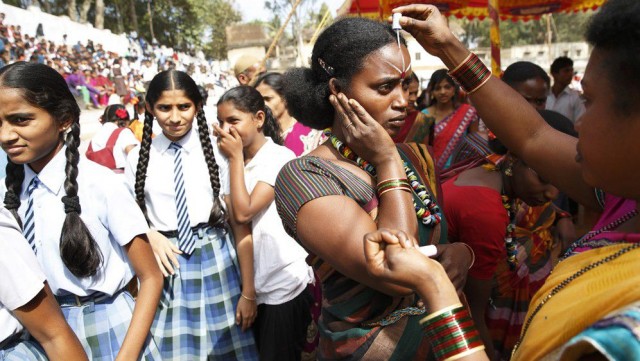Indian Communities
Although people from India had reached Africa many centuries ago, large groups of Indians did not settle there until the second half of the 1800s. At that time Britain ruled India as well as a number of colonies in Africa. The British presence in both regions made it possible for many Indians to migrate to eastern, central, and southern Africa.
The Colonial Period
When the British built railroads in Africa to link their colonies, they brought laborers from India to help lay the tracks. By 1904 more than 32,000 Indians had come to Africa to work on the railroads. Many of them returned home after the completion of the rail lines, but the British encouraged thousands of other Indians seeking work to move to Africa.
Most of the Indian immigrants came from western or northeastern India, and they included both Hindus and Muslims. Colonial policies tended to keep them separate from Africans. Indian communities grew up in cities such as NAIROBI and DAR ES SALAAM in East Africa, and Durban and JOHANNESBURG in SOUTH AFRICA. People from Portuguese-held regions of India settled in MOZAMBIQUE. Because many Indians spoke English, they were able to work in various professions, including teaching. They also found jobs in trade and industry and were able to rise to higher social and economic levels. Over time, white settlers who resented the Indians' success began to oppose the government's immigration policies. The whites considered the Indians a separate ethnic group and granted them only limited rights.

After Independence
When independence movements formed in colonies across Africa, Indian settlers were faced with a choice: remaining under colonial rule or joining the fight for independence. Many Indian leaders favored independence and supported the movements to end European control of the colonies.
After independence Africans held power in most countries. Indians had to adjust to this change. Some Africans began to resent the Indians, claiming that Indian entrepreneurs took jobs and business opportunities away from Africans. This attitude caused tensions that led tens of thousands of Indians to leave Africa. Many moved to Britain. In addition, more than 70,000 Indians were expelled from UGANDA in 1972 by President Idi AMIN DADA.
The largest group of Indians in Africa is in South Africa, where they make up about 5 percent of the population. Smaller numbers live in TANZANIA, KENYA, and ZIMBABWE. Although many Indians have left the continent since independence, some countries have welcomed skilled professionals from India to help with development programs. (See also Colonialism in Africa, European Communities, Independence Movements.)